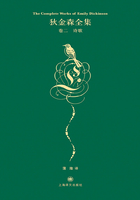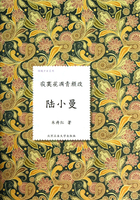It may be questioned whether in the North, where the vastest cathedrals are clearly all dedicated to Our Lady, and where an extensive branch of Latin and indigenous poetry sang the praises of the Mother of God, a greater devotion to her was impossible.In Italy, however, the number of miraculous pictures of the Virgin was far greater, and the part they played in the daily life of the people much more important.Every town of any size contained a quantity of them, from the ancient, or ostensibly ancient, paintings by St.Luke, down to the works of contemporaries, who not seldom lived to see the miracles wrought by their own handiwork.The work of art was in these cases by no means as harmless as Battista Mantovano thinks; sometimes it suddenly acquired a magical virtue.The popular craving for the miraculous, especially strong in women, may have been fully satisfied by these pictures, and for this reason the relics been less regarded.It cannot be said with certainty how far the respect for genuine relics suffered from the ridicule which the novelist aimed at the spurious.The attitude of the educated classes in Italy towards Mariolatry, or the worship of the Virgin, is more clearly recognizable than towards the worship of images.One cannot but be struck with the fact that in Italian literature Dante's 'Paradise' is the last poem in honour of the Virgin, while among the people hymns in her praise have been constantly produced down to our own day.The names of Sannazaro and Sabellico and other writers of Latin poems prove little on the other side, since the object with which they wrote was chiefly literary.The poems written in Italian in the fifteenth and at the beginning of the sixteenth centuries, in which we meet with genuine religious feeling, such as the hymns of Lorenzo the Magnificent, and the sonnets of Vittoria Colonna and of Michelangelo might have been just as well composed by Protestants.Besides the lyrical expression of faith in God, we chiefly notice in them the sense of sin, the consciousness of deliverance through the death of Christ, the longing for a better world.The intercessiOn of the Mother of God is only mentioned by the way.The same phenomenon is repeated in the classical literature of the French at the time of Louis XIV.Not till the time of the Counter-Reformation did Mariolatry reappear in the higher Italian poetry.Meanwhile the visual arts had certainly done their utmost to glorify the Madonna.It may be added that the worship of the saints among the educated classes often took an essentially pagan form.
We might thus critically examine the various sides of Italian Catholicism at this period, and so establish with a certain degree of probability the attitude of the instructed classes towards popular faith.Yet an absolute and positive result cannot be reached.We meet with contrasts hard to explain.While architects, painters, and sculptors were working with restless activity in and for the churches, we hear at the beginning of the sixteenth century the bitterest complaints of the neglect of public worship and of these churches themselves.
It is well known how Luther was scandalized by the irreverence with which the priests in Rome said Mass.And at the same time the feasts of the Church were celebrated with a taste and magnificence of which Northern countries had no conception.It looks as if this most imaginative of nations was easily tempted to neglect everyday things, and as easily captivated by anything extraordinary.
It is to this excess of imagination that we must attribute the epidemic of religious revivals upon which we shall again say a few words.They must be clearly distinguished from the excitement called forth by the great preachers.They were rather due to general public calamities, or to the dread of such.
In the Middle Ages all Europe was from time to time flooded by these great tides, which carried away whole peoples in their waves.The Crusades and the Flagellant revival are instances.Italy took part in both of these movements.The first great companies of flagellants appeared, immediately after the fall of Ezzelino and his house, in the neighbourhood of the same Perugia which has been already spoken of as the headquarters of the revivalist preachers.Then followed the flagellants of 1310 and 1334, and then the great pilgrimage without encouraging in the year 1349, which Corio has recorded.It is not impossible that the Jubilees were founded partly in order to regulate and render harmless this sinister passion for vagabondage which seized on the whole populations at times of religious excitement.The great sanctuaries of Italy, such as Loreto and others, had meantime become famous, and no doubt diverted a certain part of this enthusiasm.
But terrible crises had still at a much later time the power to reawaken the glow of mediaeval penitence, and the conscience - stricken people, often still further appalled by signs and wonders, sought to move the pity of Heaven by wailings and scourgings.So it was at Bologna when the plague came in 1457, and so in 1496 at a time of internal discord at Siena) to mention two only out of countless instances.No more moving scene can be imagined than that which we read of at Milan in 1529) when famine, plague, and war conspired with Spanish extortion to reduce the city to the lowest depths of despair.















